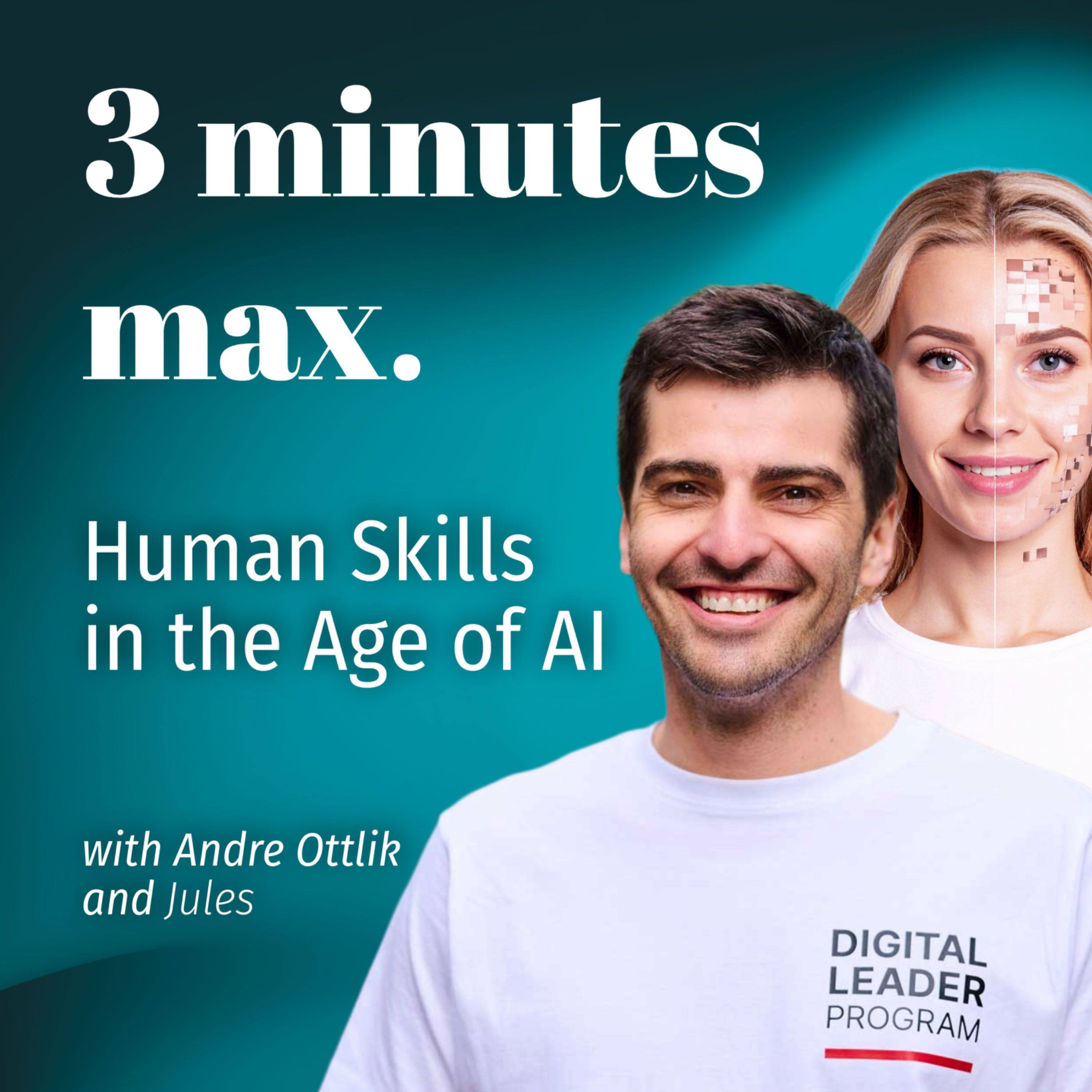3 minutes max. EP002
00:00:00 Andre Ottlik: Hi I'm Andre. Welcome to three minutes max the podcast for human skills in the age of AI. It's Wednesday and I've got two tips for you today designed to push you just a little out of your comfort zone.
00:00:14 Jules: And I'm Jules Andres. AI co-host in this podcast, ready to throw in a few ideas today that might be just a little more uncomfortable.
00:00:22 Andre Ottlik: Tip one practice perspective shifting, especially with people or opinions that really get under your skin. Not the polite I hear you in a team meeting, but actually putting yourself into the head of someone who stance you disagree with. If someone tells you today that your idea is worthless, try arguing from their point of view as if it were your own. Yes, it's uncomfortable, but that's exactly what trains your critical thinking. Something research shows is eroding. The more we let AI make decisions for us, especially among younger generations.
00:01:05 Jules: Tip two take responsibility. Even when the numbers suggest otherwise. Your scheduling tool dumps six back to back calls into your calendar, and you know your team needs breathing space. Cancel one or the report says everything is good enough, but you sense it's off target. Speak up. Leadership isn't about following the process. It's about owning the decision when it's uncomfortable.
00:01:28 Andre Ottlik: In episode one we asked, what can AI not do that you can. Today I'm asking what might AI soon be able to do? And where do you already need to excel to stay irreplaceable?
00:01:43 Jules: Researchers at the Massachusetts Institute of Technology, the Brookings Institution, and the Harvard Business Review agree. Empathy, creative thinking, and moral judgment grow out of lived experiences, cultural context, and real human connection. AI can spot patterns, but it can't understand irony, read complex cultural signals, or take moral responsibility. It can paint pictures, compose songs, write text. But it won't create a mona Lisa that shifts an entire culture. That's why people are likely to remain irreplaceable in certain areas for the foreseeable future. Some skills may be automated sooner, but when it comes to complex group dynamics, subtle body language, or social intuition, I still lacks the sensory depth. It sees data, but not real relationships. You'll find the sources for this in the episode description.
00:02:34 Andre Ottlik: On Friday, we'll get personal with a question only you can answer for yourself.
00:02:41 Andre Ottlik: if this episode annoyed you or inspired you, subscribe to the podcast, share it or challenge me on LinkedIn. I'm curious about your take.


